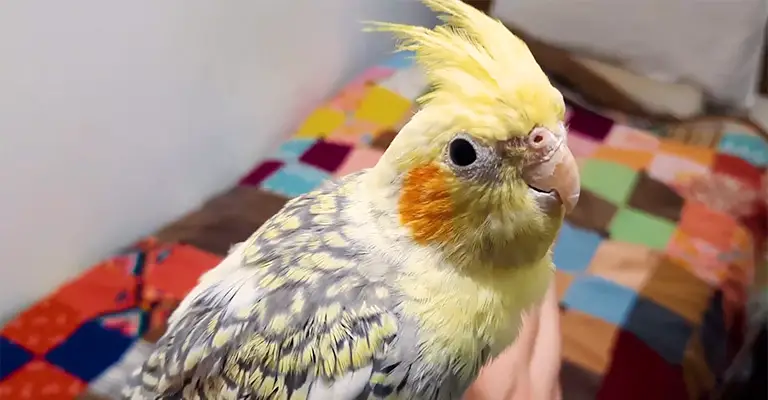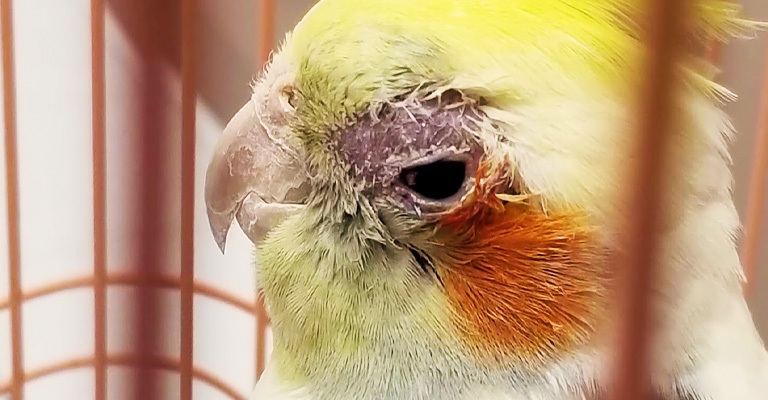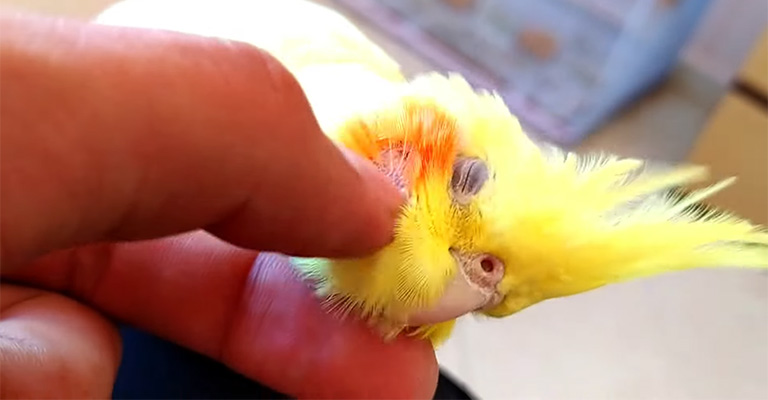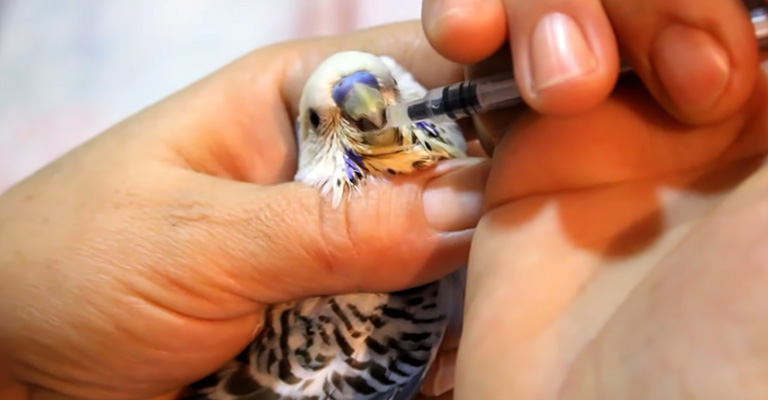Cockatiels, popular as pet birds, require careful attention to their health. Monitoring their bowel movements is crucial, as watery stools can indicate serious health concerns.
Known for their friendly and playful nature, cockatiels have specific dietary and environmental needs. By regularly observing the condition of their droppings, owners can gain insights into their bird’s well-being.
Watery stools serve as a warning sign, emphasizing the importance of timely identification and treatment of any underlying issues.
However, this issue is not a random thing that doesn’t need your concern. And after talking to some professionals and researching this fact, I’ve found something that you should learn too. That’s the purpose of today’s content and let’s start it.

Causes of Watery Stools in Cockatiels
At first, you should have a clear idea of the reason that bothers your bird and then you can find out the solution. Here is the list of possible reasons behind this problem.
Change in Diet
A change in diet can cause watery stools in cockatiels. This can be caused by a sudden change in diet or by foods that are high in water content, such as fruits.
Sudden changes in diet can upset the cockatiel’s digestive system and cause diarrhea. If your cockatiel’s diet has recently changed, it’s important to consider this as a potential cause of the watery stools.
Environmental Stress
Environmental stress can cause a variety of health problems in cockatiels, including watery stools. This can be caused by a change in the bird’s environment, such as a move to a new home or a change in the bird’s routine. Stress can also be caused by overcrowding, loud noises, or other environmental factors.
Intestinal Parasites or Infection

Intestinal parasites and infections can cause watery stools in cockatiels. These parasites and infections can be caused by a variety of factors, including poor sanitation, contaminated food or water, and contact with other infected birds.
Pesticides on Fruits or Vegetables
Pesticides on fruits and vegetables can cause watery stools in cockatiels. These chemicals can be harmful to the bird’s health and can cause a variety of symptoms, including diarrhea.
It’s important to wash fruits and vegetables thoroughly before feeding them to your cockatiel to remove any pesticides.
Kidney, Liver, or Pancreatic Diseases
Kidney, liver, and pancreatic diseases can all cause watery stools in cockatiels. These diseases can be caused by a variety of factors, including genetics, diet, and environmental toxins.
If your cockatiel has a history of kidney, liver, or pancreatic problems, or if you suspect your cockatiel may have these diseases, it’s important to consult a veterinarian.
Symptoms to Look Out for

Besides the watery stool, there can be some other symptoms if your bird is ill. Here are some of those symptoms that can be a dangerous sign for your bird’s health.
Watery Stools
Watery stools are the most obvious symptom of a problem in cockatiels. Watery droppings can be clear or cloudy and can have a strong odor.
The droppings will also be more frequent and less formed than normal. Paying attention to the consistency of your cockatiel’s droppings is key to identifying if there’s a problem.
Changes in Appetite or Behavior
A change in appetite or behavior can be a sign that something is wrong with your cockatiel. If your cockatiel is not eating or drinking as much as usual, or if it’s acting lethargic or depressed, it could be a sign of an underlying health problem.
Weight Loss
Sudden weight loss can be a sign that something is wrong with your cockatiel. Birds that are not feeling well will often lose their appetite and stop eating, which can lead to weight loss.
It’s important to monitor your cockatiel’s weight regularly to ensure it’s maintaining a healthy weight.
Increased Thirst
If your cockatiel is drinking more water than usual, it could be a sign of an underlying health problem.
Increased thirst can be caused by a variety of factors, including kidney or liver disease, diabetes, or a urinary tract infection. If your cockatiel’s water intake has increased dramatically, it’s important to consult a veterinarian.
Treatment Options

Now, you must be thinking about what to do when your bird is having such symptoms, right? Well, there are some solutions for sure. Have a glance over the below tips in this case.
Consultation With a Veterinarian
The first step in treating watery stools in cockatiels is to consult a veterinarian with experience in avian medicine.
A veterinarian will be able to examine your bird, take a history, and perform any necessary tests to determine the cause of the watery stools. They will also be able to advise you on the best course of treatment for your bird.
Medications and/or Supplements
If your cockatiel has an infection or parasite, the veterinarian will likely prescribe medications to treat the problem.
If your bird has a chronic health condition, such as kidney or liver disease, your veterinarian may also prescribe medications or supplements to help manage the condition.
Diet Adjustments
A change in diet may be necessary to help your cockatiel recover from watery stools. Your veterinarian may recommend a diet that is low in fat and high in fiber, or a special diet for birds with kidney or liver disease. It’s important to follow your veterinarian’s instructions when making any changes to your bird’s diet.
Environmental Changes
If the watery stools are caused by environmental stress, your veterinarian may recommend changes to your cockatiel’s living conditions.
This may include providing a quieter, more peaceful environment, or making sure your bird has enough space to move around and play.
It’s important to remember that the treatment plan will depend on the underlying cause of the watery stools. A proper diagnosis is crucial to establish the right treatment plan.
Consultation with a veterinarian is the best way to understand what’s causing your cockatiel’s watery stools and how to treat it.
Prevention and Management
Prevention is always better than going for treatment. So, make sure to follow the tricks that will always keep your bird healthy and sound.
Proper Diet and Nutrition
Providing your cockatiel with a balanced and nutritious diet is the best way to prevent health problems, including watery stools.
Pellets should make up the majority of their diet, but it’s also important to offer a variety of fresh fruits, vegetables, and other healthy foods. Avoiding foods that are high in water content, such as certain fruits, can also help prevent watery stools.
Regular Check-ups With a Veterinarian
Regular check-ups with a veterinarian with experience in avian medicine can help prevent health problems by catching them early.
A veterinarian can help ensure that your cockatiel is healthy and can advise you on any changes you should make to your bird’s diet, environment, or routine to keep it healthy.
Clean and Maintain Water and Food Dishes
Keeping your cockatiel’s food and water dishes clean is essential to prevent health problems, including watery stools. Food dishes should be cleaned and disinfected daily, and water dishes should be cleaned and refilled with fresh water daily.
Minimize Stress on the Bird
Stress can cause a variety of health problems in cockatiels, including watery stools. To minimize stress, it’s important to provide your bird with a calm and peaceful environment and to avoid overcrowding and loud noises. Regular interaction and playtime with your cockatiel can also help keep it happy and healthy.
It’s important to remember that prevention is key to avoiding watery stools in cockatiels. Paying attention to their diet, environment, and overall health and catching any issues early will help ensure that your cockatiel stays healthy and happy. If you notice any changes in your cockatiel’s droppings or behavior, consult a veterinarian as soon as possible.
FAQs
Can watery stools in cockatiels be caused by a change in temperature?
Yes, a change in temperature can cause watery stools in cockatiels. Birds are sensitive to temperature changes, and extreme heat or cold can cause stress and disrupt the normal functioning of their digestive system. If you notice watery stools in your cockatiel following a change in temperature, it’s important to consult a veterinarian.
Can watery stools in cockatiels be caused by a fungal or bacterial infection?
Yes, watery stools in cockatiels can be caused by fungal or bacterial infections. These types of infections can occur in the digestive tract and can cause diarrhea and other symptoms. If you suspect your cockatiel has a fungal or bacterial infection, it’s important to consult a veterinarian as soon as possible.
Can watery stools in cockatiels be treated at home?
In some cases, watery stools in cockatiels can be treated at home with simple changes to the bird’s diet and environment. However, if the watery stools are caused by a more serious health problem, it’s important to consult a veterinarian for proper diagnosis and treatment.
Conclusion
Watery stools in cockatiels should never be ignored, as they can be indicative of underlying health issues. By closely monitoring your bird’s droppings and promptly addressing any abnormalities, such as watery stools, you can safeguard their well-being.
Providing a balanced diet, regular veterinary check-ups, and a clean environment are crucial in maintaining a healthy cockatiel. If watery stools persist, seeking professional advice from an avian veterinarian is essential for accurate diagnosis and appropriate treatment.
So, prioritize the health and welfare of our feathered friends, we can ensure that they lead happy and fulfilling lives as cherished members of our families. Best of luck.